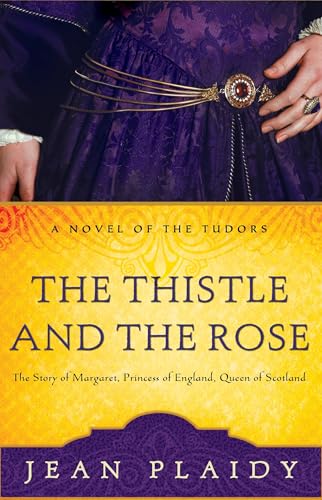Tudor History: A Cross Section of Non-fiction/Fiction
Explore Tudor history through a curated list of top fiction and non-fiction books. Dive into the drama, intrigue, and facts of the Tudor era with these must-read titles.


Book
The Children of Henry VIII
by Alison Weir
“Fascinating . . . Alison Weir does full justice to the subject.”—The Philadelphia Inquirer At his death in 1547, King Henry VIII left four heirs to the English throne: his only son, the nine-year-old Prince Edward; the Lady Mary, the adult daughter of his first wife Katherine of Aragon; the Lady Elizabeth, the teenage daughter of his second wife Anne Boleyn; and his young great-niece, the Lady Jane Grey. In this riveting account Alison Weir paints a unique portrait of these extraordinary rulers, examining their intricate relationships to each other and to history. She traces the tumult that followed Henry's death, from the brief intrigue-filled reigns of the boy king Edward VI and the fragile Lady Jane Grey, to the savagery of "Bloody Mary," and finally the accession of the politically adroit Elizabeth I. As always, Weir offers a fresh perspective on a period that has spawned many of the most enduring myths in English history, combining the best of the historian's and the biographer's art. “Like anthropology, history and biography can demonstrate unfamiliar ways of feeling and being. Alison Weir's sympathetic collective biography, The Children of Henry VIII does just that, reminding us that human nature has changed--and for the better. . . . Weir imparts movement and coherence while re-creating the suspense her characters endured and the suffering they inflicted.”—The New York Times Book Review




Book
The Thistle and the Rose
by Jean Plaidy
From the pen of the legendary historical novelist Jean Plaidy comes the story of Princess Margaret Tudor, whose life of tragedy, bloodshed, and scandal would rival even that of her younger brother, Henry VIII. Princess Margaret Tudor is the greatest prize when her father, Henry VII, negotiates the Treaty of Perpetual Peace with neighboring Scotland. The betrothal is meant to end decades of bloody border wars, but it becomes a love match: To Margaret’s surprise, she finds joy in her marriage to the dashing James IV of Scotland, a man sixteen years her senior. But the marriage, and the peace it brings to both nations, does not last. When King James is struck down by the armies of Henry VIII, Margaret—Princess of England, but Queen of Scotland—finds herself torn between loyalty to the land and family of her birth and to that of her baby son, now King of the Scots. She decides to remain in Scotland and carve out her own destiny, surviving a scandalous second marriage and battling with both her son and her brother to the very end. Like all the Tudors, Margaret’s life would be one of turmoil and controversy, but through her descendants, England and Scotland would unite as one nation, under one rule, and find peace.




















Book
The Boleyn Inheritance
by Philippa Gregory
From the author of "The Other Boleyn Girl" comes an atmospheric evocation of the court of Henry VIII, and the one woman who destroyed two of his queens.

Book
The Constant Princess
by Philippa Gregory
From the "New York Times" bestselling author of "The Virgin's Lover," this enthralling new novel answers one of history's most intriguing questions: What lay behind Katherine of Aragon's enormous, history-changing lie?

Book
The Secret Diary of Anne Boleyn
by Robin Maxwell
When Elizabeth I assumes the throne of England, she is given the secret diary of her mother Anne Boleyn, who was betrayed and beheaded by her husband Henry VIII. In reading the diary she learns about her mother's life and determines to heed the lessons of her mother's difficult life.




Book
Lies and Lust in the Tudor Court
by Margaret Doner
Lies and Lust in the Tudor Court tells the story of the teenager, Katheryn Howard, and her marriage to the aging, ill-tempered Henry VIII. To some she is considered a harlot and a greedy girl from an even greedier family. To others she is a victim, in love with another man and forced to marry the King. In truth she was a mercurial, strong-willed, sexually appealing woman trapped by the dangerous politics of the Tudor court and her barren womb. Her final words when she knelt at the executioner's block were, "I die the Queen of England, but I would have rather died the wife of Thomas Culpeper." Not as well known as her famous cousin, Anne Boleyn, Katheryn's story is every bit as exciting and dangerous. It is a piece of history that has the power to stimulate our imagination five hundred years later.